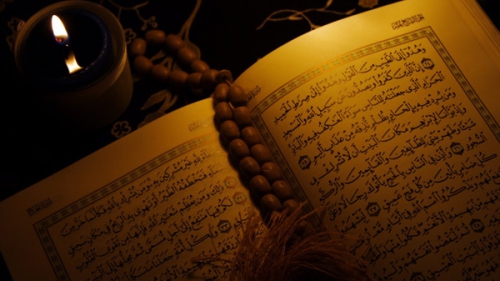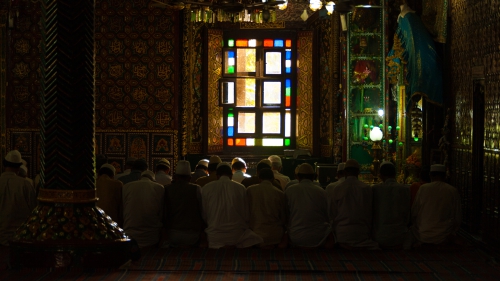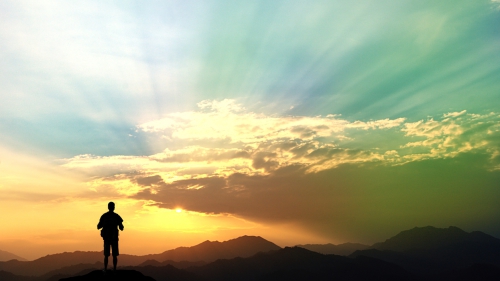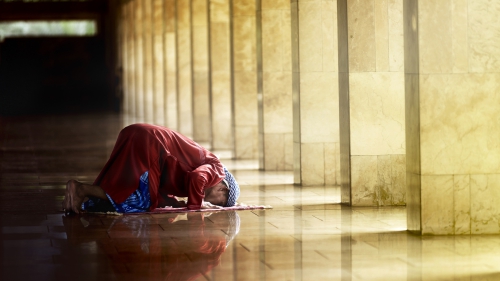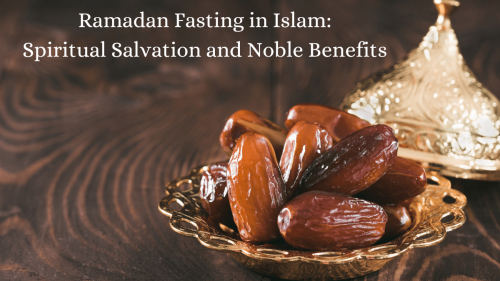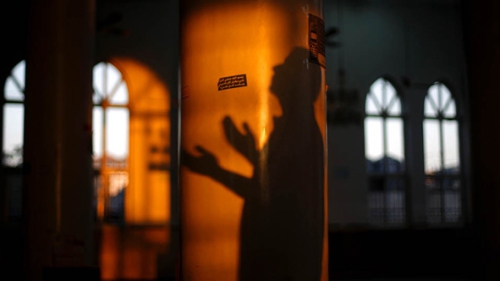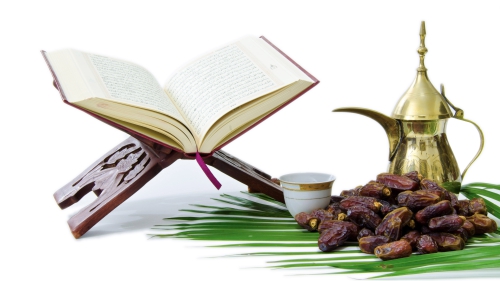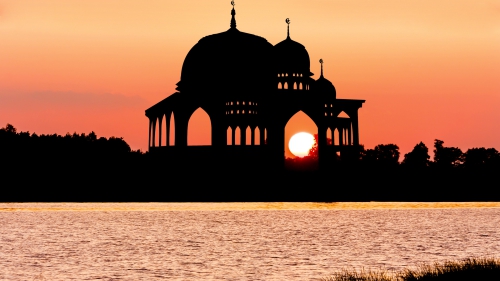The importance of fasting: A Jewish view

A major challenge to doctors in the 21st century will be 'life style diseases.' Diabetes is a good example. Diabetes is becoming an epidemic with cases tripling in the last 30 years. The disease can be delayed - perhaps even arrested by simple diet changes, modest weight loss and regular moderate exercise. But even moderate diet and exercise require self-discipline and self-discipline is increasingly challenged by many forces in our freedom loving, indulgent, modern society.
Doctors are accustomed to curing people, not reforming them. Yet that is what they will find themselves doing more and more in the 21st century. This will bring medicine closer to religion in many ways in the coming decades. Connecting people to religious sources of spiritual self-discipline and helping them apply them to life-style self-discipline will help improve peoples' mental and physical health. There are many connections between spiritual health (holiness) and mental /physical well-being. One of most important of these connections is fasting.
Why should people restrict their culinary pleasures? More outrageous, why should we afflict ourselves by fasting? Don't most people think that being happy is the most important thing? Isn't eating one of the most accessible pleasures we have? Why should religions restrict our pleasures? Why should the Torah decree a day of fasting. (Leviticus 16:29, 23:27). For twenty-four hours Jews (in good health) are supposed to afflict their souls by abstaining from eating or drinking anything. What we do not eat may be even more important than what we do eat. All animals eat, but only humans choose to not eat some foods that are both nutritious and tasty. Some people do not eat meat for religious/ethical reasons. Jews and Muslims do not eat pork for religious/spiritual reasons. And on Yom Kippur - the Day of Atonement Jews do not eat or drink anything at all for twenty-four hours. Every year for the entire the month of Ramadan, Muslims fast from first light until sundown, abstaining from food, drink, and marital relations. The Quran says "Oh ye who believe! Fasting is prescribed to you as it was prescribed to those before you, that ye may (learn) self-restraint," Quran 2:183.
What is the Torah and the Quran trying to teach us by decreeing the importance of fasting? What spiritual benefits occur when we fast?
First of all, fasting teaches compassion. It is easy to talk about the world's problem of hunger. We can feel sorry that millions of people go to bed hungry each day. But not until one can actually feel it in one's own body is the impact truly there. Compassion based on empathy is much stronger and more consistent than compassion based on pity. This feeling must lead to action. Fasting is never an end in itself; that's why it has so many different outcomes. But all the other outcomes are of no real moral value if compassion is not enlarged and extended through fasting. As the prophet Isaiah said, "The truth is that at the same time you fast, you pursue your own interests and oppress your workers. Your fasting makes you violent, and you quarrel and fight. The kind of fasting I want is this: remove the chains of oppression and the yoke of injustice, and let the oppressed go free. Share your food with the hungry and open your homes to the homeless poor" (Is 58:3-7)
Second, fasting is an exercise in will-power. Most people think they can't fast because it's too hard. But actually the discomfort of hunger pangs is relatively minor. A headache, muscle pains from too much exercise, and most certainly a toothache, are all more severe than the pains hunger produces. I have on occasion fasted for three days, and found that after the first twenty four hours the pain decreases slightly as the stomach becomes numb. The reason it is so hard to fast is because it so easy to stop. The food is all around, and in easy reach; all you have do is take a bite. Thus the key to fasting is the will power to decide again and again not to eat. Our society has increasingly become one of self indulgence. We lack self discipline. Fasting goes in direct opposition to our increasing "softness" in life. When people exercise their will-power and fast, they are affirming their self-control and celebrating mastery over themselves. We need continually to prove that we can do it, because we are aware of our frequent failures to be self-disciplined.
The third outcome of fasting is improved physical health. Of course, one twenty-four hour fast will not have any more effect than one day of exercise. Only prolonged and regular fasting promotes health. The annual fast on Yom Kippur can, however, awaken us to the importance of "how much and how often we eat". For many years research has shown that when animals are somewhat underfed, receiving a balanced diet at below the normal quantity for maximum physical health, their life spans were prolonged from 50% to 100%. With all the additives placed in food these days a reduction of total food intake has to be healthful. More important, since our society has problems with overabundance, fasting provides a good lesson in the virtue of denial. Health problems caused by overeating are the most rapidly growing health problems in affluent Western countries. A good example is the increasing spread of diabetes. Sixteen million people in the United State have diabetes, according to the U.S. Centers for Disease Control and Prevention. Among residents 40 and older, 16% of Latinos, 13% of African Americans, 8% of Asian Americans and 8% of whites in Los Angeles County have diabetes.
Diabetes can lead to blindness, kidney disease, heart disease, nerve damage, amputations and sometimes death. The prevalence of the disease is related to high rates of obesity and a sedentary lifestyle, which increase the risk of developing the disease. More than half of adults in Los Angeles are overweight, and 60% do not get regular exercise. One fifth of all those who are obese will develop diabetes. Thus going without any food, or even water, for a twenty-four hour period challenges us to think about the benefits of the spiritual teaching; less is more.
Fourth in our list of outcomes, fasting is a positive struggle again our dependencies. We live in a consumer society. We are constantly bombarded by advertising telling us that we must have this or that to be healthy, happy, popular or wise. By fasting we assert that we need not be totally dependent on external things, even such essentials as food. If our most basic need for food and drink can be suspended for twenty-four hours, how much more our needs for all the nonessentials. Judaism doesn't advocate asceticism as an end in itself. In fact it's against Jewish law to deny ourselves normal pleasures. But in our overheated consumer society it is necessary periodically to turn off the constant pressure to consume, and to remind ourselves forcibly that "Man does not live by bread alone." (Deut. 8:3)
Fifth, fasting serves as a penance. Though self inflicted pain may alleviate some guilt, it is much better to reduce one's guilt by offsetting acts of righteousness to others. This is why, for Jews, contributing to charity is an important part of Yom Kippur. The same is true for Muslims during Ramadan. Indeed, fasting that doesn't increase compassion is ignored by God. Also, the concept of fasting as penance helps us understand that our suffering can be beneficial. Contemporary culture desires happiness above all else. Any suffering is seen as unnecessary and indeed evil. Though we occasionally hear people echo values from the past that suffering can help one grow, or that an existence unalloyed with pain would lack certain qualities of greatness, many today seem to think that the primary goal in life is " to always be happy and free of all discomfort." The satisfaction one derives from the self-induced pain of fasting provides insight into a better way of reacting to the externally caused suffering we have to experience anyway. Taking a pill is not always the best way to alleviate pain especially if by doing so we allay the symptoms without reaching the root cause.
Sixth, fasting is good for the soul. It often serves as an aid for spiritual experiences. For most people, especially those who have not fasted regularly before, hunger pains are a distraction. People who are not by nature spiritual/emotional individuals will probably find that a one-day fast is insufficient to help induce an altered state of consciousness. Those who have fasted regularly on Yom Kippur might like to try a two to three day fast (liquids permitted). It is best to go about your daily activities and devote your late evening or early morning to meditation and prayer. Since you have already fasted for Yom Kippur the easiest way is to simply extend the fast another thirty-six to forty-eight hours. We are prohibited to fast prior to Yom Kippur; eating a good meal prior to Yom Kippur Eve is a mitzvah (religious duty), because Judaism opposes excessive asceticism.
The seventh outcome of fasting is the performance of a mitzvah, which is, after all, the one fundamental reason for fasting on Yom Kippur. We do not do mitzvoth in order to benefit ourselves, but because our duty as Jews requires that we do them. Fasting is a very personal mitzvah, with primarily personal consequences. Fasting on Yom Kippur is a personal offering to the God of Israel from each member of the family of Israel. For over 100 generations Jews have fasted on this day. A personal act of fasting is part of the Jewish people's covenant with God. The principal reason to fast is to fulfill a mitzvah. The outcome of your fast can be any of a half dozen forms of self-fulfillment. But simply knowing that you have done one of your duties as an adult Jew is the most basic and primary outcome of all.
Finally, fasting should be combined with the study of Torah (the five books of Moses specifically or Scriptural texts in general). Indeed, the more one studies, the less one needs to fast. A medieval text states, "Better to eat a little and study twice as much, for the study of Torah is superior to fasting." Fasting is a very personal, experiential offering. However, though study is also a personal experience, it takes place with a text and/or a teacher. The Divine is often more readily and truly experienced in dialogue with others than in solitary meditation.
May our fasting become a first step toward the removal of all the chains of oppression that bind ourselves, our neighbors, and our world!
Related Suggestions
Being a Christian, I am in no direct way, required to fast but I have a deep desire to do so. Fasting, in a sense, destroys the complex walls that sin constructs between us and God. Food, like sexual impurity and substance abuse, is fulfillment of the flesh which leads us down the path of death - the final wage of sin. When we abstain from food, we are allowing ourselves the opportunity to become closer to God.
Fasting is truly a gift - pursuing it and carrying it out takes great personal strenth and will power, which God so graciously lends us. But he does give us the choice; we can deviate and be tempted to devour a delicious peice of chocolate cake, or we can shun the Satan's tempation by surmounting our desires. I wish to do the latter. By doing so, we are pleasing God and we are benifitting ourselves in the process. Character construction is on of the results from fasting. We are also devoting more time to him. By abstaining from food, we can use God as our sustenenace - we can devote more time to reading (The Qu'ran, the Bible etc.)and constructing spiritually-fulfilling lives for ourselves.
Although our religious beliefs differ in many ways, we share one definitive quality - we all worship and adore the Lord God of Abraham - the masterful, gracious and merciful. We have al ot we can learn from each other - in the area of fasting as well.
To all of those out there fasting diligently and wanting to connect on a deeper level with our glorious Creator, I wish you the best. Continue to put him first and surely, your needs will be granted. Shalom, Salaam and may God Bless you all!
This article is a good example of the common religious instruction among Islam and Judiasm.
My comment would be that it contained too many quotes from the Judeo-christian bible(the first 5 books)and that is unbefitting an Islamic site.
For muslims the only reason for fasting is to attain righteuosness and every thing else;ie better health, self-control,...etc., is a byproduct " Oh you who believe,fasting was prescribed to you as it was prescribed to those who preceded you so that you may attain righteousness" Quran 2:183. The word 'taqwa' means many things in Arabic and it really loses some of its meaning when it is translated into English. And incidentally, the writer trasnslated this word in his article to mean "self restraint" and I strongly disgree with translation although it serves his purpose. This is an oversight on the part of Islamic City editors.
I appreciate your site and the reasons for its being. Keep up the good work and may Allah hold your feet firm on the straight bath.
Salam,
Khalaf
It is then easy to accept the fact Almighty has granted creation and existence of the state of Israel, and these then may preach to those who understand not!
And world can indeed become a place for peaceful coexistence!
Thanks for that spout of hatred. And i'm sure if Muslims were truly practicing Islam in its true sense, they wouldn't be crashing jet airliners into our skyscrapers, bombing nightclubs in Bali, murdering Christians in Nigeria, bombing Hotels in Kenya or killing Israeli teenagers at discos or children at Pizzerias. and to quote you Shaheem "And YOU KNOW IT!!"
Very interesting article. I hope we'll get the chance to read some more articles that will teach us some of the basic practices of other religions.
I believe that as Muslims view themselves being stereotyped, others can say the same thing about themselves. I, personally, bothered to get to know about Christianity and Judaism from Jews and Christians and not make the same mistake we blame others of doing by just saying or believing what they hear on TV about Muslims. Often people are blinded by their own minds when they see themselves as good and think that every body should think about them just the way they are thinking about themselves.
Then they go around talking about others in a way they don't want others to talk about them.
I just hope God will open our minds and our minds so we could see better and clearer.
I'd like to get the name of a single Jew who is practicing the Torah today!! You know what there arent any! Because if there were, the situation in Palestine wouldnt be what it is today. I can guarantee you that if Moses were alive today, he would consider every "Jew" alive today to be a heretic infidel!!
Jews quote the Torah when it's convinient, but when the Torah asks people to do something they dont like, Jews ignore those orders!!
If you wanna quote the quran, let me quote a part of the quran. "Oh People of the Book (Jews & Christians) why do you mix the truth with lies, even after realising what the truth is??"
This article does not at all reflect how the Jewish religion is practiced today. AND YOU KNOW IT!!






